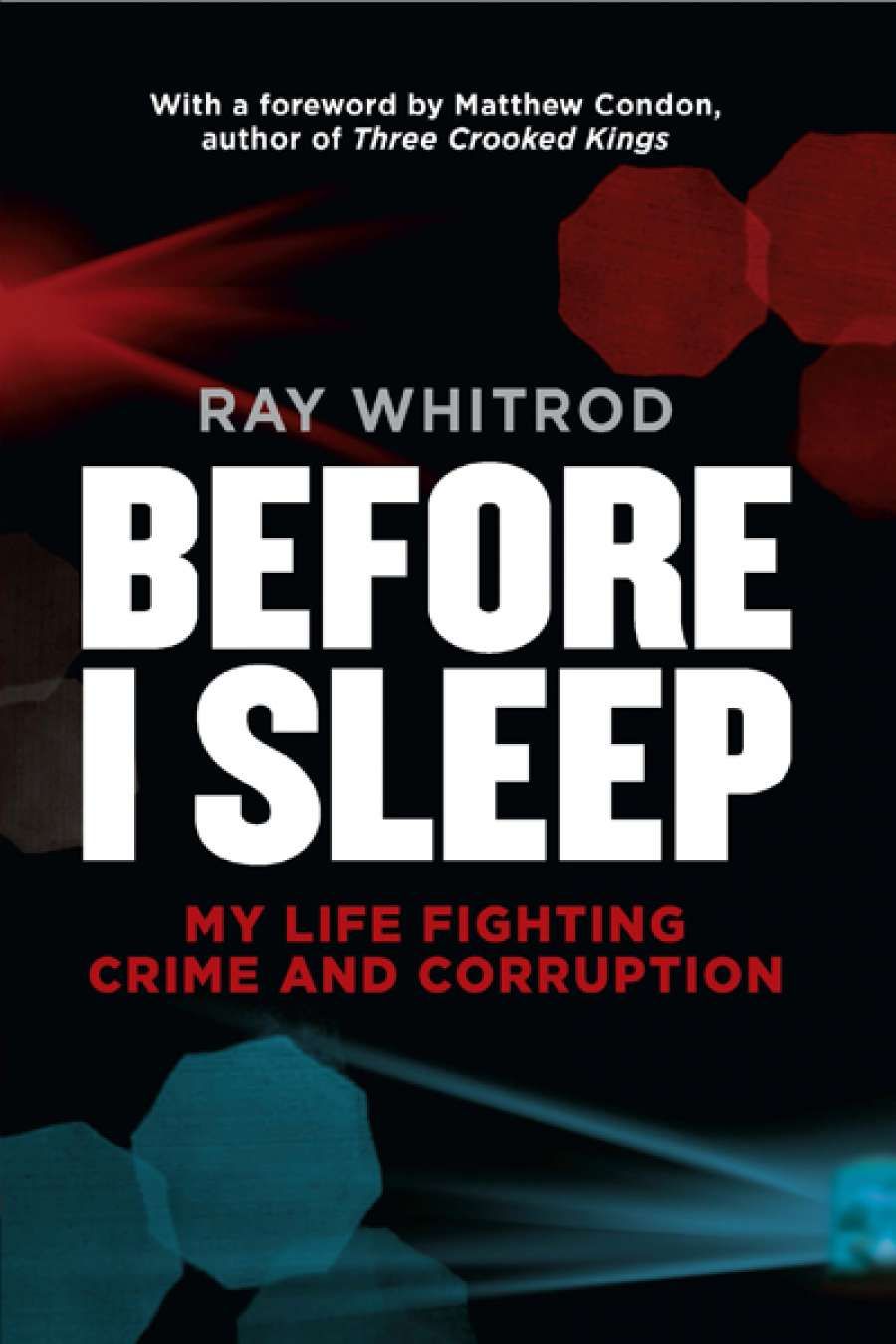
- Free Article: No
- Contents Category: True Crime
- Custom Article Title: Andrew Nette reviews 'Before I Sleep' by Ray Whitrod
- Book 1 Title: Before I Sleep
- Book 1 Subtitle: My Life flighting crime and corruption
- Book 1 Biblio: University of Queensland Press, $32.94 pb, 227 pp, 9780702253409
Whitrod grew up in a working-class part of Adelaide. One of his few pleasures was the Scouts, the Ten Scout Rules of Lord Baden Powell quickly supplementing his Baptist faith. He graduated from school into the Great Depression and, after a brief period of unemployment, joined the South Australian Police Force, an act he describes as emerging ‘into the bright light at the end of a very dark tunnel’. He had found his mission in life. The job also allowed him to be accepted as a suitor for Mavis Russell, the woman he married and remained with until her death in 2001.
Whitrod served as a navigator in the Royal Australian Air Force during World War II, flying Catalina seaplanes in Europe and the Middle East. Characteristically, he downplays what must have been a terrifying experience, except to note at one stage: ‘In my own group of twelve navigators who had trained with me, eight were killed and two became prisoners.’ He admits the experience imbued him with a toughness that would come in handy in later years. He returned to Adelaide’s Criminal Investigation Bureau, then a position in ASIO. The details are vague due to legal restrictions about what the author can reveal about his tenure as director of the former Commonwealth Investigation Service and his brief stint as head of the Papua New Guinea colonial police force.
‘By his own admission Whitrod was ill-prepared; his six years in the job reads like a slow-motion political assassination’
Whitrod became head of the Queensland police after the lengthy tenure of Frank Bischof, whom Condon describes in his introduction as ‘the primary architect of institutionalised police corruption known as The Joke, that would, decades later, infect virtually every arm of government in Queensland’. By his own admission Whitrod was ill-prepared; his six years in the job reads like a slow-motion political assassination. Corrupt elements surrounded him, and the police union opposed every reform he tried to implement, particularly the introduction of promotion by merit rather than seniority. Whitrod never stood a chance. He was an honest cop, a ‘Mexican’, the term used for those from the southern states, and a progressive by the standards of Queensland in the 1970s. He supported women in the force and, as he puts it, was ‘tolerant of Aborigines and other minority groups’. He also lacked the backing of the two major police factions, the Irish and the Masons.
Much information has come to light about pre-Fitzgerald Inquiry Queensland since 2001, when Before I Sleep first appeared. Three Crooked Kings, for example, gives us a sense of how severely the beleaguered police commissioner was harassed. Whitrod refers to the frustrations and constant attacks; at one point he writes: ‘because of certain events, I hadn’t felt safe despite being the top policeman in the state. I had taken to locking my bedroom door at night and keeping a firearm with me.’ He doesn’t elaborate.
 Premier Joh Bjelke-Petersen
Premier Joh Bjelke-Petersen
Whitrod does, however, help answer a question raised but not satisfactorily resolved in Condon’s books: why the majority of Queenslanders were so apathetic and accepting of widespread police corruption. Queensland’s political culture, Whitrod argues, was rurally oriented, conservative, authoritarian, male dominated, and aggressively anti-intellectual. He cites a public jibe made by Premier Joh Bjelke-Petersen: that the police did not require Rhodes scholars. In the early 1970s, only a handful of members of the force had graduated beyond year Ten.
The thematic strand of Before I Sleep is that poorly trained, equipped, and paid police are not only susceptible to corruption but display an ingrained bias against innovation and reform. Whitrod championed aspects of policing we now take for granted: merit-based promotion, ongoing education, proper management, equality for women, the use of data. It was the long, unglamorous slog by people such as Ray Whitrod that made this happen. His is not a particularly exciting story, but it is an important one.


Comments powered by CComment